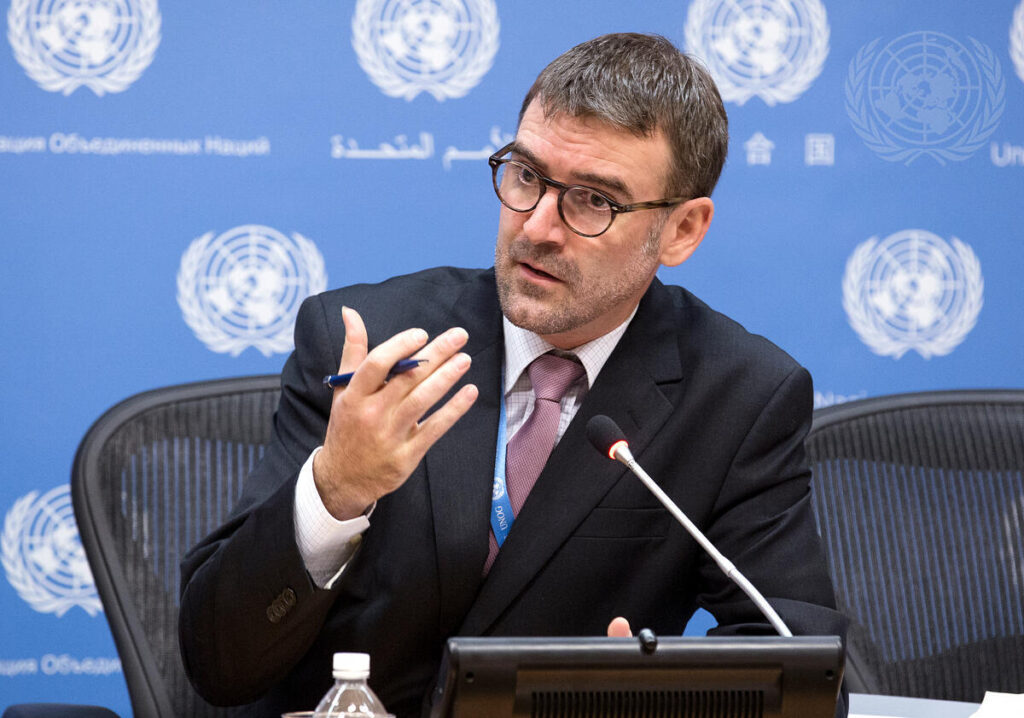
The UN Special Rapporteur on the promotion of truth, justice, reparation, and guarantees of non-recurrence, Bernard Duhaime, hailed the establishment of a Special Tribunal for The Gambia as a “historic step towards accountability and bringing justice to victims”.
The tribunal will address gross human rights violations and crimes committed during the regime of former President Yahya Jammeh, from July 1994 to January 2017.
The decision to create the tribunal was approved on December 15, 2024, by the Economic Community of West African States (ECOWAS). The tribunal, a hybrid court combining domestic and international judicial elements, will prosecute crimes such as torture, extrajudicial killings, enforced disappearances, and crimes against humanity.
The tribunal’s formation follows the recommendations of The Gambia’s Truth, Reconciliation, and Reparations Commission (TRRC), which was established to investigate atrocities committed during Jammeh’s rule. The TRRC identified 68 individuals, including Jammeh, security force members, and senior officials, as allegedly complicit in crimes such as rape, torture, and extrajudicial killings.
“After two decades of authoritarian rule, some transitional justice measures were taken, but progress in implementing the recommendations of the national truth commission has been slow,” Duhaime noted. “Concerns about the persistent climate of impunity have been raised repeatedly.”
Scope and Jurisdiction of the Hybrid Court
Under the hybrid court system approved by ECOWAS, the tribunal will have the authority to prosecute international crimes, even if those crimes were not explicitly recognized under Gambian law at the time they were committed. This hybrid approach integrates both international legal standards and Gambian judicial structures, enhancing the court’s ability to deliver justice in a fair and transparent manner.
“The decision to establish a hybrid court offers renewed hope to victims and strengthens the broader pursuit of justice and accountability,” Duhaime said.
Duhaime emphasized the importance of complementing the tribunal’s judicial role with non-judicial measures to address the legacy of Jammeh’s regime. These include reparations for victims, official apologies, public memorials, and initiatives to educate the public about the abuses of the past.
“Fostering long-term peace, stability, and national reconciliation requires efforts that go beyond prosecutions,” Duhaime said. He urged The Gambian government to prioritize these measures alongside the tribunal’s work to ensure holistic accountability and healing for victims and their families.
Support from The International Community
The Special Rapporteur acknowledged the significant role of ECOWAS and the Gambian government in advancing this historic initiative, while calling on international partners to support the tribunal’s operations and the broader transitional justice process. Financial resources, technical expertise, and political backing from the global community will be critical for the success of the tribunal and its associated efforts.
“This tribunal signals to victims and perpetrators alike that impunity will not stand. It also sends a strong message to the world that justice and accountability are integral to building a sustainable democracy,” Duhaime said.
Looking Forward
The tribunal is expected to serve as a model for addressing atrocities in other nations that have experienced prolonged authoritarian rule. Observers anticipate that its hybrid framework will pave the way for stronger regional collaboration on human rights and justice in West Africa.
The Special Rapporteur confirmed ongoing engagement with Gambian authorities to provide support and ensure the tribunal’s alignment with international standards. The establishment of the court marks a pivotal moment in The Gambia’s journey toward justice, reconciliation, and a lasting legacy of human rights protection.










Recent Comments